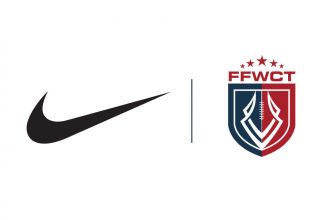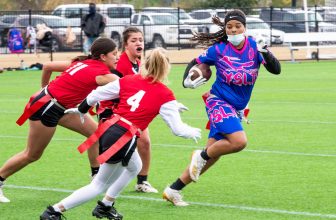5 Tips for Developing an RFP for Event Owners
Nearly 3 years ago to this date my business partner and I sat in a big room in Sacramento, at our first major sports conference, completely unprepared for what we were about to experience, just happy to be a part of something bigger than us. We had run one tournament to our name, but had already had over 200 teams registered for our 2nd ever event, and were receiving a lot of attention in a market we knew nothing about. We scheduled meeting after meeting our first day, explaining who we were and our plans for adding more events, but the one questions we didn’t have a good answer for was, “Do you have an RFP?”. Being the quick thinkers we were, we said not yet, but would email it, not having any idea what an RFP even was. Luckily, they were offering a class that year on how to build a better RFP, and before the next conference we attended we were prepared.
For those new to the sports tourism conference world and for those just looking for tips on improving your RFP for event owners to help lock in more venues you’re targeting, this article is for you!
What is an RFP
RFP stands for Request for Proposal, but in layman’s terms means, “Who are you, and what do you want”. Basically, this is your opportunity as an event owner to sell the concept of your company and your event(s) to cities and CVB’s all over the country who might want to help you host an event in their region.
Who should create an RFP
For the type of RFP we’re talking about, any event owner who already has a history of running either a single event or many and has aspirations of seeking out additional locations for said events should highly consider developing a strong RFP to gain assistance. Every little bit helps, and you never know what kind of support you may receive just by asking, you may not even understand the value of what your event could bring until you really get your feet wet in the sports tourism market.
What Information should it Contain
Your RFP should at a minimum contain information on the following information to reduce the amount of questions needed to determine if you’re a good fit for their market:
- Who you are, including your history and demographics of your player base
- The nature and size of your events, including on estimated travel nights of participants, room nights expected, how it fits in your schedule, date preferences, etc.
- What is required to operate your events, including field sizes and dimensions, amenities required, and other aspects relative to your sport needed to operate. For this I’d be as specific as you can be, the more clear the information the easier for a support organization to see how they may be able to assist.
- What you’re requesting from a city or CVB in order to host an event in their market. Generally in the form of helping on-board you in their region, but could be expense relief for things like facility costs, hotel comps, etc, potentially including rights fees and bid fees for larger events.
- Information on how to submit the bid, whether you’d like them to fill out a form on their website, send you an email with request or put forth a full presentation on their end or whatever else makes sense for you.
How to present an RFP
If you’re going to mostly be delivering the RFP’s by email, I’d recommend creating them in a presentation style program like PowerPoint or Google Slides where you can easily email or send links. You could also save them to PDF, and/or print them. If you anticipate hand delivering a lot of RFP’s, let’s say at on of the sports tourism conferences during your meetings, you might look at using a professional design program to print them more booklet style or in a better print format, or hiring someone to create them for you. In many cases your RFP will tell a lot about your business and events, including your style and professionalism where a first impression may be huge!
Who to send an RFP to
In general, RFP’s will be a document reserved for organizations who have ability and means to support your organization in some way, which typically means a city or county wide Convention and Visitor’s Bureau, Sports Commission or possibly Parks and Rec Department. To get in touch, you could either attend a sports conference as mentioned above, or if you’re targeting a specific city or area you want to be in just google these departments and reach out directly with specifics on what you’re looking for.
Don’t be Pinocchio
What I will leave you with in closing is to make sure and be as realistic and truthful as you can in your RFP. While you may be tempted to embellish the facts a bit to make your event seem more appealing, the sports tourism world is a small one and when you don’t live up to expectations repeatedly it can really burn a lot of bridges long term. Start small, work your way up and develop relationships that can last a lifetime beyond the success of a single event or two in the process!
Feel free to let us know what other tips you have as event owners or what else you’d like to see as destinations that we may have missed and any examples you have to share in the comments below!
Travis Burnett
A pioneer in the flag football community, Travis helped co-found the Flag Football World Championship Tour, FlagSpin and USA Flag. Featuring 15+ years of content creation for the sport of flag football, creating and managing the largest flag football tournaments on the planet, coaching experience at the youth and adult level as well as an active player with National and World Championship level experience.









